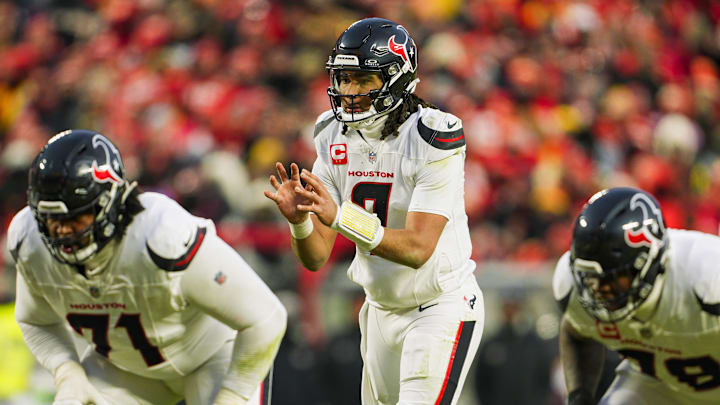After a season marked by offensive inconsistency and a disappointing sophomore campaign from quarterback C.J. Stroud, the Houston Texans entered the 2025 offseason with a clear mandate: bolster the offense. But with limited salary cap room, Houston’s moves have been measured, leaving questions about whether enough has been done to support their franchise quarterback.
The Texans’ most notable acquisition came via trade, sending a 2026 seventh-round pick to the Jacksonville Jaguars for wide receiver Christian Kirk, who is expected to slot in as a key target for Stroud. Houston also added veteran receiver Justin Watson and signed Braxton Berrios, primarily a depth piece and return specialist, to a one-year deal1. In the NFL Draft, the Texans selected wideouts Jayden Higgins and Jaylin Noel, along with running back Woody Marks, hoping that youth and upside can inject life into the offense.
Despite these additions, the Texans’ upgrades have been characterized as “fringe moves,” and the team’s reluctance—or inability—to make a splash signing has not gone unnoticed. “Protecting C.J. Stroud was the Texans' biggest issue last season, yet their offensive line makeover has been underwhelming at best,” wrote FOX Sports’ Ben Arthur, highlighting the uncertainty surrounding Houston’s revamped unit following the trade of All-Pro left tackle Laremy Tunsil.
With the offense still searching for answers, speculation has grown around the possibility of Houston pursuing a blockbuster trade for Atlanta Falcons tight end Kyle Pitts. Multiple reports indicate that while the Falcons are not aggressively shopping Pitts, they are open to offers and have received inquiries from several teams. Atlanta is reportedly seeking at least a Day 2 draft pick in return for the 24-year-old, who is entering the final year of his rookie contract and set to earn $10.88 million in 2025.
Pitts, the No. 4 overall pick in the 2021 draft, burst onto the scene with a 1,000-yard Pro Bowl rookie season but has struggled to replicate that production amid injuries and Atlanta’s revolving door at quarterback. Last season, he posted 602 yards and a career-high four touchdowns, but questions persist about his role in the Falcons’ offense and whether a change of scenery could unlock his potential.
For Houston, the appeal is obvious. Tight end Dalton Schultz, who signed a lucrative extension after a strong 2023, failed to meet expectations last season, finishing with just 532 yards and two touchdowns—numbers that placed him outside the top tier at his position. The Texans also have young tight ends Brevin Jordan, who is returning from injury, and rookie Luke Lachey, but neither projects as a game-changing weapon in the passing game.
Adding Pitts would give Stroud a dynamic, athletic target capable of stretching the field and creating mismatches, while also allowing Houston to experiment with two-tight end sets alongside Schultz. Such a move could provide much-needed stability and versatility to an offense still searching for its identity.
While the Falcons maintain that they would prefer to keep Pitts, both team and player appear open to the right deal—especially if it means a larger role in a more prominent offense. As the Texans weigh their options, the potential for a high-upside addition remains on the table.
With the AFC South growing more competitive and Stroud’s development at a critical juncture, Houston may need to get aggressive if it hopes to keep pace. Whether that means pulling the trigger on a trade for Pitts—or finding another way to upgrade the arsenal around their young quarterback—remains to be seen.
